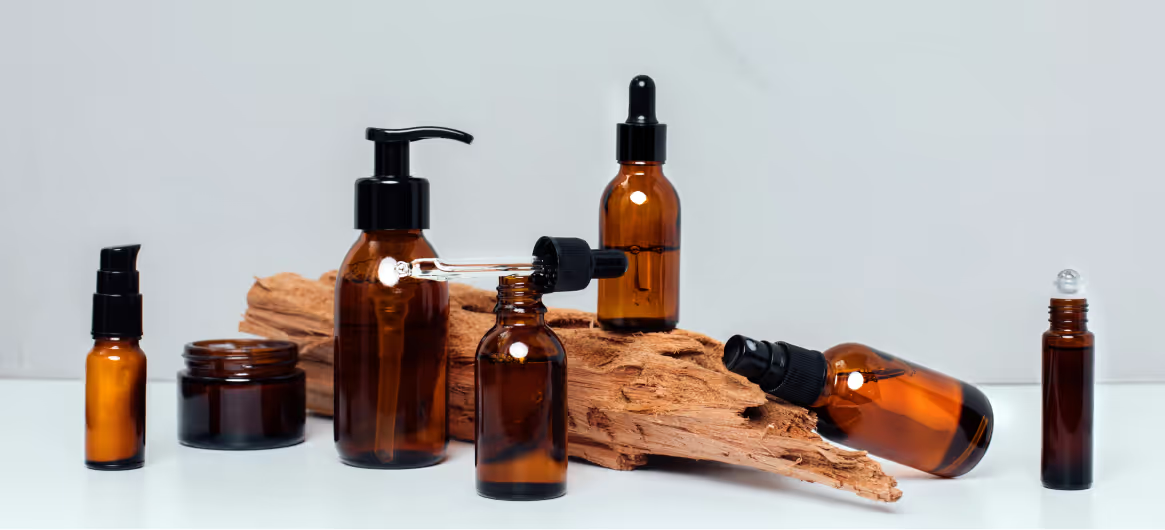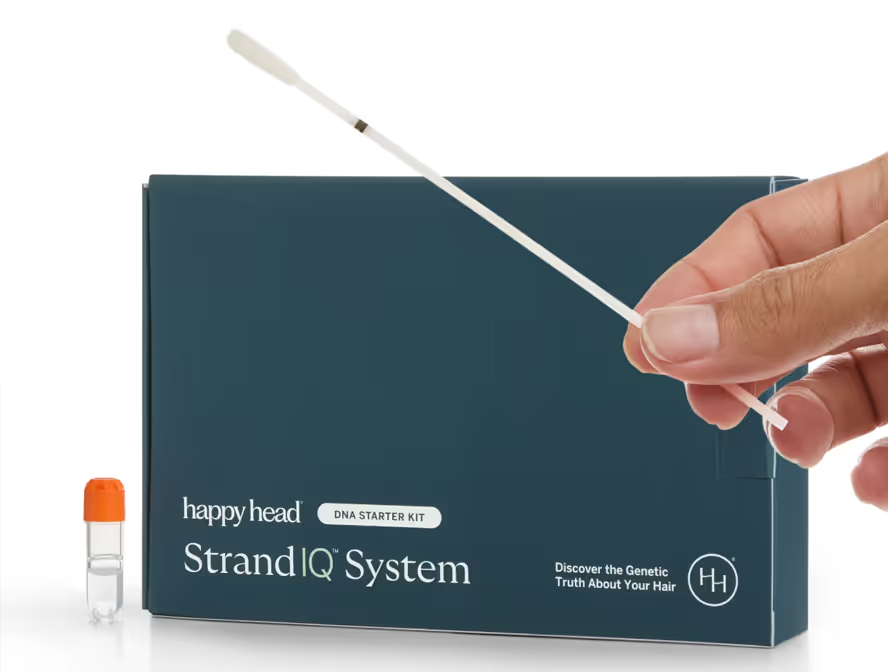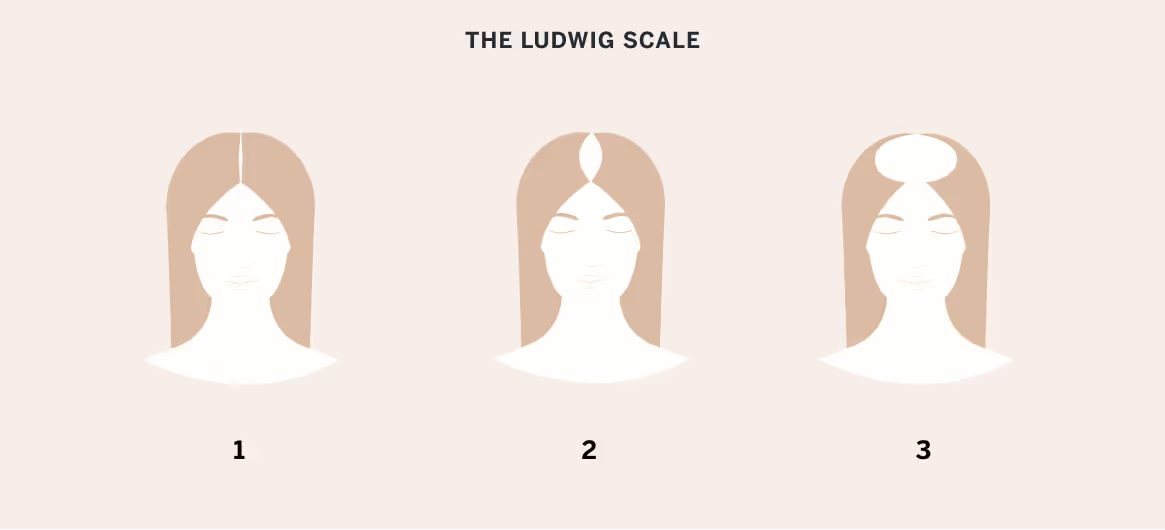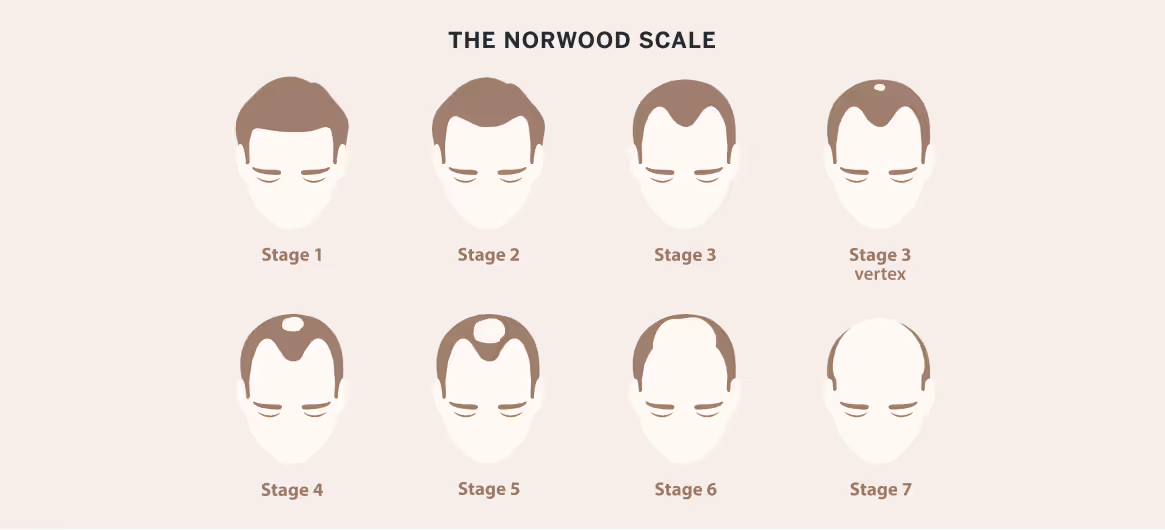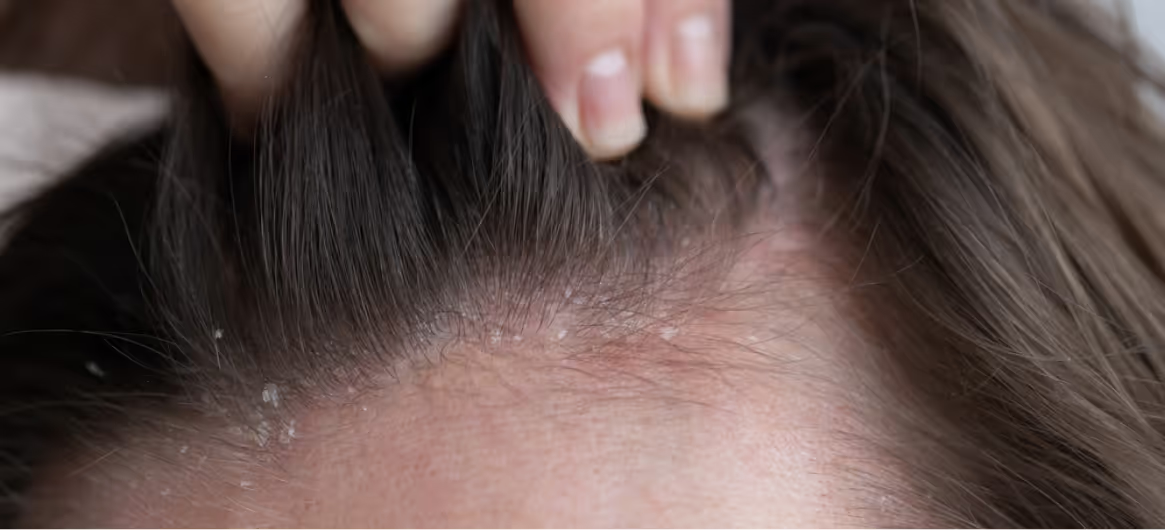Essential oils for hair growth are becoming increasingly popular thanks to their natural ability to strengthen hair, improve scalp health, and reduce breakage.
These concentrated plant extracts contain bioactive compounds that penetrate the scalp, stimulate follicles, and support thicker, healthier hair over time.
While they are not a cure for genetic hair loss, proper selection, dilution, and consistent application can enhance follicle strength and overall hair quality, making them a valuable addition to a comprehensive hair growth strategy.
How Essential Oils Support Hair Growth
Essential oils support hair growth primarily by improving the health of the scalp and follicles. When applied topically, their bioactive compounds penetrate the scalp’s outer layer and enter hair follicles, where they enhance circulation, reduce inflammation, and deliver antioxidants.
Oils such as rosemary and peppermint stimulate blood flow, providing nutrients that strengthen follicles and promote thicker, stronger hair.
Regular, properly diluted application can also help balance scalp oil production, reduce buildup, and maintain a healthy environment for optimal hair growth.
Benefits for Scalp Health
Essential oils help maintain a healthy scalp by reducing dryness, flakiness, and inflammation. Oils such as tea tree and lavender possess antimicrobial properties that combat bacteria and fungi, preventing scalp irritation and follicle damage.
Improved circulation from stimulating oils encourages nutrient delivery to follicles, while soothing oils reduce irritation and support overall scalp balance, creating ideal conditions for stronger, healthier hair growth.
Top Oils for Thicker Hair
Several essential oils have been studied or traditionally used to promote thicker, healthier hair. Each oil has unique compounds that stimulate follicles, improve circulation, or maintain scalp health.
Choosing the right oil, or a combination of oils, can address specific hair concerns, enhance follicle strength, and reduce breakage, helping hair appear fuller over time.
1. Rosemary Oil
Rosemary oil is rich in antioxidants and compounds that improve blood circulation to hair follicles. By stimulating nutrient delivery and reducing inflammation, it helps strengthen strands and may slow thinning.
Consistent topical use can enhance follicle density and support thicker hair, making rosemary oil one of the most widely recommended essential oils for hair growth.
2. Peppermint Oil
Peppermint oil contains menthol, which produces a cooling sensation and promotes increased blood flow to the scalp. This improved circulation nourishes follicles and may stimulate growth.
Additionally, peppermint oil has antimicrobial properties that reduce scalp irritation and balance oil production. Regular use can strengthen hair shafts and help hair appear fuller and healthier over time.
3. Lavender Oil
Lavender oil is valued for its antimicrobial and anti-inflammatory effects, which maintain a clean, healthy scalp. It is thought to enhance follicle growth and reduce stress-related shedding.
Its soothing properties also help minimize irritation and dryness, creating an optimal environment for hair to grow stronger, thicker, and more resilient with consistent application.
4. Saw Palmetto Oil
Saw palmetto oil is derived from the berries of the saw palmetto plant and is known for its potential to inhibit DHT, a hormone linked to hair thinning.
Topical application may help reduce follicle miniaturization, support thicker hair, and strengthen existing strands. Its anti-inflammatory properties also maintain scalp health, creating an environment conducive to healthier, fuller hair over time.
5. Pumpkin Seed Oil
Pumpkin seed oil is rich in fatty acids, antioxidants, and phytosterols that nourish hair follicles and strengthen hair strands. It also helps inhibit DHT locally.
Regular application can improve follicle health, reduce hair loss, and promote thicker, more robust hair over time.
6. Tea Tree Oil
Tea tree oil is a potent antimicrobial and antifungal agent that helps prevent scalp infections. By clearing clogged follicles and reducing inflammation, it supports healthy follicle function.
Maintaining a clean, balanced scalp environment allows hair to grow stronger, reduces breakage, and encourages fuller, healthier hair with consistent, diluted use.
7. Cedarwood Oil
Cedarwood oil stimulates scalp circulation while balancing natural oil production. Its antifungal and antibacterial properties reduce follicle irritation and strengthen hair at the root.
By improving nutrient delivery to follicles and maintaining scalp health, cedarwood oil can contribute to thicker hair, reduced shedding, and stronger, more resilient strands over time.
8. Ylan-Ylan Essential Oil
Ylang-ylang oil enhances scalp circulation and nourishes hair follicles, helping reduce breakage and dryness. Its moisturizing properties strengthen hair shafts, while its calming effect may indirectly reduce stress-related shedding.
Consistent use can result in improved hair texture, thickness, and overall scalp health, making it a valuable addition to hair growth routines.
9. Lemongrass Essential Oil
Lemongrass oil contains antimicrobial and astringent compounds that help maintain a healthy scalp environment. By reducing follicle inflammation, removing buildup, and balancing oil levels, it supports stronger, thicker hair growth.
Regular use may also improve hair elasticity, reduce breakage, and create an optimal foundation for healthy, resilient hair over time.
10. Clary Sage Oil
Clary sage oil contains phytoestrogens and antibacterial compounds that improve follicle function and scalp balance. Its soothing and stress-reducing properties may reduce hair shedding associated with tension or hormonal fluctuations.
Regular application strengthens hair shafts, enhances follicle health, and contributes to thicker, fuller, and shinier hair over time.
11. Geranium Oil
Geranium oil supports scalp health by regulating sebum production and improving circulation to follicles. Its anti-inflammatory and antibacterial properties help prevent irritation and follicle damage.
With consistent use, geranium oil strengthens hair strands, reduces breakage, and promotes a fuller appearance, contributing to healthier, more resilient hair.
Mixing Oils With Carrier Oils
Essential oils are highly concentrated and must be diluted in carrier oils before applying to the scalp.
Carrier oils not only reduce the risk of irritation but also provide additional nutrients, improve absorption, and enhance the overall benefits of the essential oils for hair growth and scalp health.
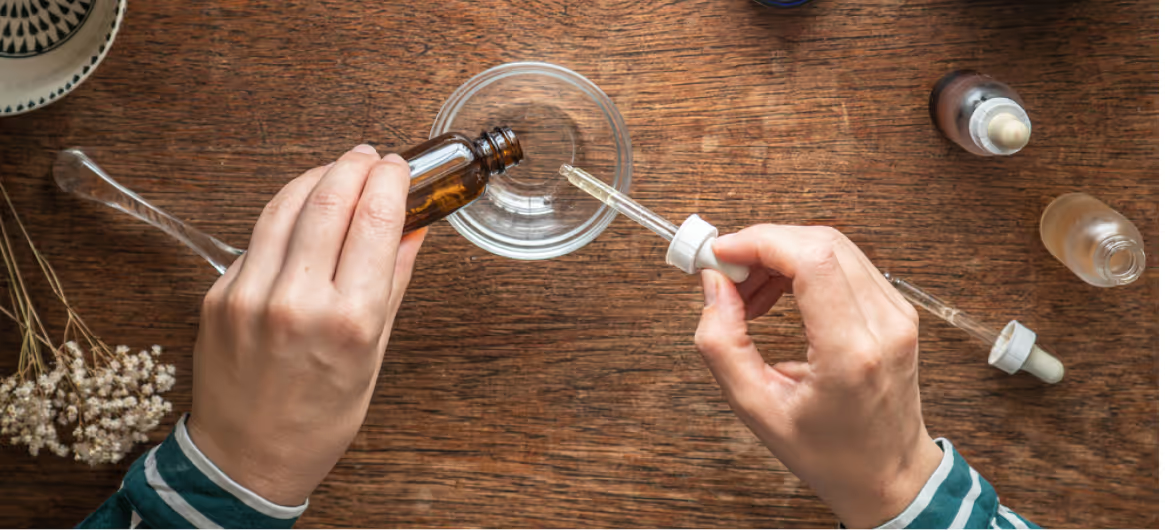
Selecting a Carrier Oil
Choosing the right carrier oil depends on your hair type and specific needs.
- Jojoba oil closely mimics natural scalp sebum, balancing moisture without greasiness.
- Coconut oil penetrates the hair shaft, reducing protein loss.
- Grapeseed oil is lightweight and ideal for fine hair.
- Castor oil is thick and rich in ricinoleic acid, which may promote follicle circulation.
Safe Dilution Ratios
Getting the dilution right is critical for both safety and effectiveness. The general rule is 2–3 drops of essential oil per tablespoon of carrier oil. For sensitive scalps, start with just 1 drop per tablespoon.
Never exceed a 3% dilution for leave-in treatments. That translates to about 18 drops of essential oil per ounce of carrier oil. Always perform a patch test on your inner arm before applying any new oil blend to your scalp.
How To Apply Oil Blends
The way you apply your oil blend matters just as much as what's in it. Proper application techniques ensure maximum absorption and effectiveness.
Scalp Massage Technique
Start with dry or slightly damp hair for best absorption. First, warm the oil blend between your palms. Part your hair into sections, and apply the oil directly to your scalp, not just your hair. Use your fingertips to massage in circular motions for 5–10 minutes.
Focus on areas where you notice thinning or want to encourage growth. The massage itself stimulates blood flow, which amplifies the oils' effects. Apply gentle but firm pressure; you should feel relaxed, not uncomfortable.
Overnight Oil Treatment
Overnight treatments give oils extended time to work their magic. After massaging the oil blend into your scalp, cover your hair with a shower cap or silk scarf. This creates a warm environment that enhances absorption.
In the morning, shampoo thoroughly. You might need to lather twice to remove all residue. Limit overnight treatments to once or twice weekly.
Potential Risks
While essential oils are natural, they're not without risks. Some people experience allergic reactions, scalp irritation, or increased sun sensitivity.
Quality matters immensely with essential oils. Look for 100% pure, therapeutic-grade oils from reputable brands. Only purchase essential oils in dark glass bottles; clear containers let in light that degrades oil quality.
Be cautious if you're pregnant, nursing, or have medical conditions. Some oils can interact with medications or affect hormone levels. Discontinue use if you notice increased hair loss, severe itching, or scalp inflammation.
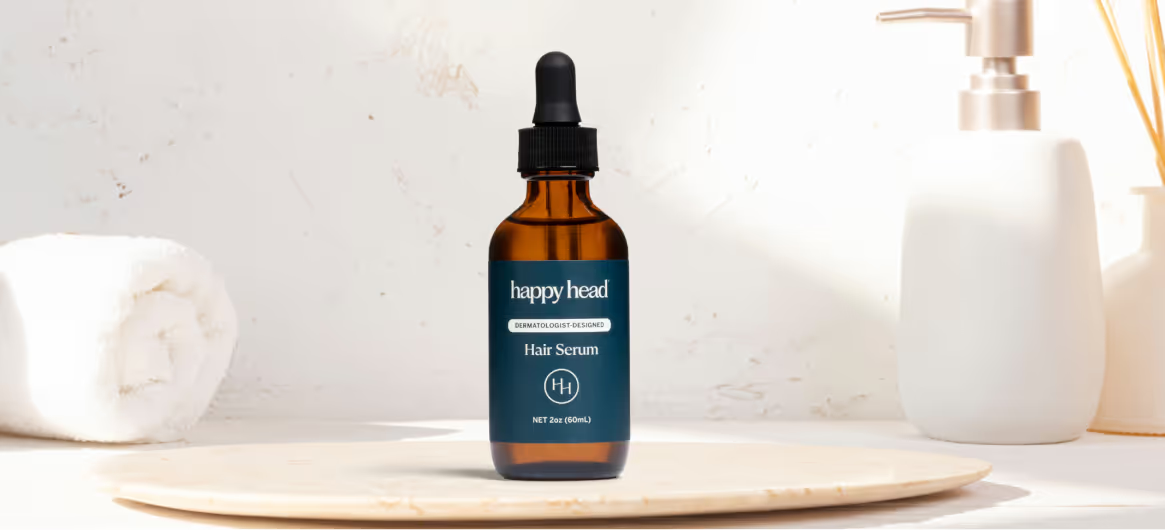
Other Hair Growth Solutions To Consider
While essential oils can support healthier hair and scalp, some people may require additional, clinically proven treatments to address thinning or hair loss. Here are the treatments most recommended by dermatologists:
- Minoxidil: Minoxidil, available OTC or in higher strengths by prescription, stimulates follicles and prolongs the growth phase of hair.
- Finasteride: Products with finasteride block DHT, a hormone linked to hair loss in men.
- Dutasteride: Dutasteride is similar to finasteride but is more potent in inhibiting DHT.
- Spironolactone: This antiandrogen medication is for women with hormonal hair thinning.
- PRP Therapy: Platelet-rich plasma injections promote follicle health and hair density.
- LLLT (Low-Level Laser Therapy): Noninvasive light therapy helmets stimulate follicle activity and enhance growth.
Essential Oil for Hair Growth: Which Is Right for You?
Choosing the right essential oil for hair growth depends on your scalp condition, hair type, and personal preferences.
Start with a single oil or a carefully blended combination, and always dilute with a carrier oil to ensure safety. Consistent application, proper technique, and scalp care are key.
For individuals experiencing noticeable thinning or hair loss, consulting a dermatologist can help identify underlying causes and determine the most effective plan, whether that involves using essential oils for hair growth or prescription hair loss solutions.
Talk to a board-certified dermatologist to discuss your goals and find the solution that is best for you.
Frequently Asked Questions
Which oil is best for hair growth and thickness?
The “best” essential oil depends on your scalp condition and hair type. Rosemary, peppermint, and lavender oils are among the most studied for promoting circulation, strengthening follicles, and reducing hair thinning. Combining oils or alternating them may provide broader benefits for scalp health and hair strength.
What oil is proven to regrow hair?
Certain oils, such as rosemary and peppermint, may help support hair growth by improving blood circulation to follicles and reducing inflammation. While no essential oil guarantees full regrowth, consistent use can strengthen existing hair and improve overall density over time.
Can essential oils really regrow hair?
Essential oils can support hair regrowth indirectly by stimulating follicles, improving scalp circulation, and maintaining a healthy scalp environment. They are not a cure for genetic hair loss or severe alopecia, but they can complement other treatments and enhance hair thickness and resilience when used correctly.
How do you mix essential oils for hair growth?
Essential oils must be diluted in a carrier oil, such as jojoba, coconut, or castor oil, to avoid irritation. Typical dilution ratios range from 1–5%, depending on sensitivity. Combining complementary oils, such as rosemary with peppermint, can enhance circulation and follicle health while providing a safe and effective scalp treatment.





